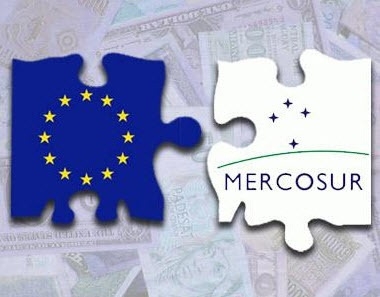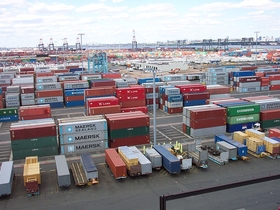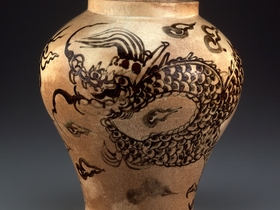Introduction
After roughly twenty years of sporadic negotiations, the European Union (EU) and the Common Market of the Southern Cone (Mercosur) signed a bilateral trade agreement. Building on existing agreements, the EU-Mercosur Agreement (EU-Mercosur) provides for greater trade liberalization between the two commercial regions and institutes enforcement frameworks for environmental and labor rights. Although both Mercosur and EU government leaders tout the its immense projected savings in tariffs, some industry sectors and lobbying interests have already expressed sharp criticism of the June 28 agreement.
The advent of EU-Mercosur could significantly affect bilateral trade between the US and Mercosur countries. While the agreement may ultimately facilitate trade in goods and services for American exporters as Mercosur’s members change regulations and enforcement to conform with EU standards, downstream domestic industries, particularly those which rely on frozen beef, might be adversely affected by the new FTA, as trade liberalization between EU and Mercosur might divert Brazilian exports from the US.
Background
Starting in 1950, several post-war European countries politically and economically integrated into the European Coal and Steel Community. This commercial union, comprised of Belgium, France, Germany, Italy, Luxembourg and the Netherlands, with the 1957 ratification of the Treaty of Rome, became the forerunner to the modern EU, the European Economic Community (EEC). Ultimately the EU would grow to 28 member countries across Europe.
Mercosur was established in 1991 when, Argentina, Brazil, Paraguay, and Uruguay signed the Treaty of Asunción, an agreement which recognized that their countries were then, and with the exception of Argentina still are, politically turbulent, developing nations:
“Considering that the expansion of [Mercosur’s] domestic markets, through integration, is a vital prerequisite for accelerating [the] process of economic development with social justice [and] convinced of the need to promote the scientific and technological development of [Mercosur] and to modernize [its economy]…with a view to enhancing the living conditions of [its] population, hereby decide to establish a common market.”
Prior to the EU-Mercosur, the two trade regions had negotiated the Interregional Framework Cooperation Agreement (IFCA). Effective since 1999, the IFCA provided the broad outlines which were elaborated upon by EU-Mercosur.
Summary
EU-Mercosur makes detailed provisions for regulation of trade in goods; dispute settlement; and labor and environmental protections. Over a 10-year period, Mercosur will liberalize 91 percent of its EU imports. Other products, deemed more sensitive by the signatories, will liberalize over a 15-year period. In return, the EU will remove all tariffs on 92 percent of its tariff lines within the same 10-year period.
Industrial goods commerce will be completely duty-free within 10 years after the agreement enters into effect.
With respect to agricultural goods, the EU will eliminate tariffs on 93 percent of exported items, corresponding to approximately 95 percent of the EU’s total export value. Beef, poultry, and pork will be partially liberalized under EU-Mercosur, which makes provision for tariff-rate quotas.
Reactions
EU-Mercosur has been acclaimed as heralding a new chapter in international commerce. Jean-Claude Juncker, European Commission (EC) President, described EU-Mercosur as “a strong signal that we stand for rules-based trade,” emphasizing the €4 billion savings on customs duties that the EU will save as a result of the deal. EC Trade Commissioner, Cecilia Malmström, said that the agreement “sets high standards and establishes a strong framework to address issues like the government and labour rights,” and, in her Bloomberg piece, Therese Raphael concurs with Juncker, noting in particular the “sharp riposte” the bilateral treaty makes to Brexiteers hoping to leave the EU common market without long-term cost:
“For Brexiteers, the new deal is a reminder that it can be chilly outside the EU’s big trade tent. They had argued breezily that they could just roll over the EU’s existing trade deals and then strike their own more advantageous agreements. Those assumptions are looking shaky…For those hoping for a quickie free-trade pact in the event of a no-deal exit, the Mercosur deal is a reminder that nothing about these things is ever quick.”
EU agricultural stakeholders have voiced strong objections to the deal, alleging that the negotiators have thrown their interests under the bus. Environmental lobbyists, such as Greenpeace, criticize EU-Mercosur as “dealing in environmental destruction” by encouraging ranchers to further deforest the Amazon and by increasing EU auto exports. Although French President, Emmanuel Macron, was pleased that the agreement protected geographic indicators for agricultural goods, such as wines and cheeses, French foreign ministers, such as Jean-Yves Le Drian, unequivocally panned the deal:
“We are going to wait and see what exactly is in this text but, I would like to tell you that the whole government and I will be vigilant. I will not be the minister who sacrifices French agriculture on the altar of an international agreement.”
EU-Mercosur’s future remains uncertain, as all EU member countries, as well as the EU Parliament have yet to approve the agreement-in-principle. Furthermore, as argued in a Peterson Institute for International Economics op-ed, Mercosur’s widely divergent internal and external trade policies, particularly with respect to applied tariff rates and temporary tariff rates (e.g. antidumping duties, countervailing duties, and safeguard measures) belie a fractiousness that has long bedeviled the region’s politics, not to mention flies in the face of the expressed aims of both the Asunción treaty and the more elaborate EU-Mercosur
Impact
EU-Mercosur, which will account for roughly 25 percent of global GDP and roughly 770 million people, will likely benefit U.S. goods exporters, as Mercosur countries’ customs regulations and infrastructure conform to EU-Mercosur’s and, to that extend, US standards, but could also prove detrimental for goods importers, if due to more favorable tariffs, Mercosur exports ordinarily destined for the US market are diverted to the EU.
According to the United States Trade Representative’s (USTR), statistics, Brazil, which has the largest GDP of any Mercosur member, is the US’s 13th largest goods trading partner and its 9th largest goods export market. In 2018, US goods exports to Brazil totaled approximately $39.5 billion, with $630 million of these being agricultural exports. Leading US agricultural exports include wheat ($63 million); prepared food ($39 million); chocolate and cocoa products ($36 million); livestock feed ($34 million); and eggs and egg-derived products ($32 million).
In turn, Brazil exports a substantial amount of agricultural goods to the US. In the year 2018 alone, Brazil exported around $3.3 billion in agricultural goods. Leading Brazilian exports include raw coffee ($934 million), fruit and vegetable juices ($504 million), and prepared/preserved red meat, such as beef ($281 million). Ranking 17th among US goods suppliers, Brazilian exports totaled $31.2 billion and, based on IMF indicators from the past decade, this number will continue to grow.
According to the U.S. Meat Export Federation (USMEF), Brazilian beef imports are subject to between 10 and 12 percent in tariffs. If EU-Mercosur is implemented, downstream food products reliant on these imports may need to consider modifying their sources, as Brazilian beef may be diverted to the EU as import tariffs decrease over time and the EU honors tariff-rate quota agreements concerning beef.




